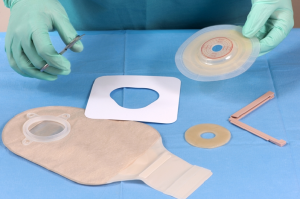How to reduce medical supply waste

May 11, 2017 by Medigroup
Hospitals and doctor’s offices use a number of different supplies daily to provide proper patient care. However, a considerable amount of supplies are wasted, adding to operational costs. Health care institutions must be more conscious of the tools they’re using and take action to preserve as much available inventory as possible.
Waste by the numbers
Hospital operating rooms are a major source of supply waste. According to research from the University of California-San Francisco, 2,000 tons of waste come daily from U.S. operating rooms. Upon examining 58 neurosurgeries at the UCSF Medical Center, nearly $1,000 in supplies per procedure were discarded without being used, costing up to $2.9 million annually. This included items like sponges and gloves as well as higher-cost supplies like sealants and surgifoam®. These items add up fast, particularly when servicing hundreds of patients throughout the day.

Thousands of tons in medical supplies are wasted daily.
The situation may be worse than it appeared, however, as nurses admitted that they were being more conservative because they knew they were being observed. In fact, a report from Johns Hopkins University estimated that $15 million worth of unused surgical supplies are discarded every year. If hospitals adopted sustainable practices, the industry as a whole could save $5.4 billion within the next five years and generate $15 billion in savings in the next 10 years, according to a study by University of Illinois-Chicago professor Susan Kaplan.
“Talk with doctors to find out what supplies they prefer to use.”
What can be done to cut down on medical supply waste?
Medical supply waste happens for a few key reasons. Strict industry protocols place pressure on health care institutions to follow procedures. Infection protocols state that any items brought into an operating room must be discarded after a procedure, even if it’s not used. It’s even more difficult because some supplies come prepackaged together or are set out by assistants beforehand. Other items might be thrown away to make room for new supplies.
In order to reduce waste, nurses and techs should talk with doctors to find out what supplies they prefer to use. This way, the right supplies can be set out from the beginning. Hospitals can also put out bins to collect usable discards. These supplies can be sent to facilities in need, such as the prison system and health services in developing nations. Many of these places have trouble keeping supplies in stock, and will take donations. Through this type of recycling program, hospitals can cut down on supply waste and help other institutions provide quality patient care.
Medical supply waste is a real problem for many health care providers. When getting an examination room ready for the next patient, useable supplies might simply be thrown away rather than restocked. By adopting conservative practices and donating viable discards, the industry will see significant savings and contribute to better patient treatment overall. Team up with a GPO like MediGroup to learn how to save on inventory costs.















